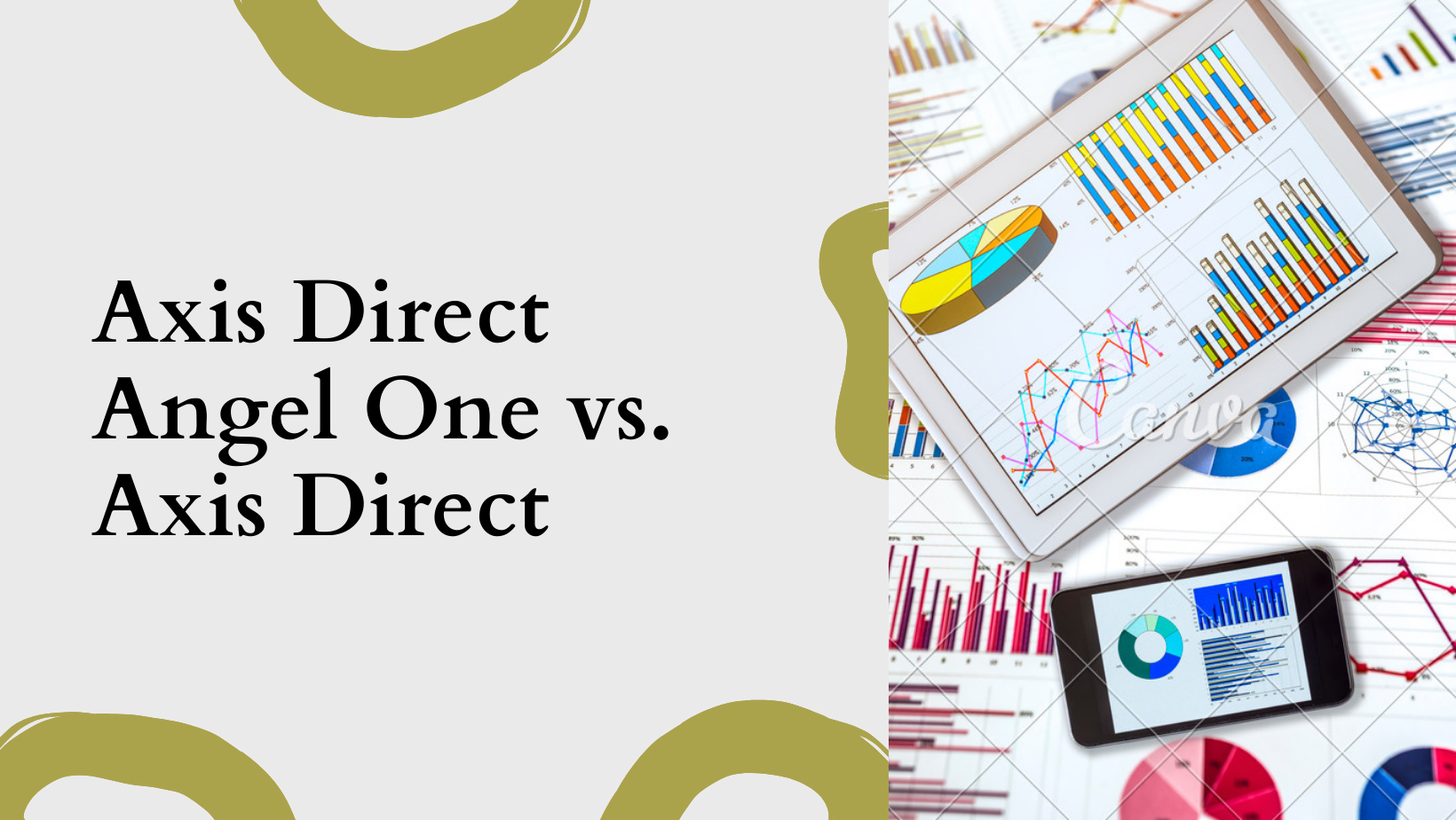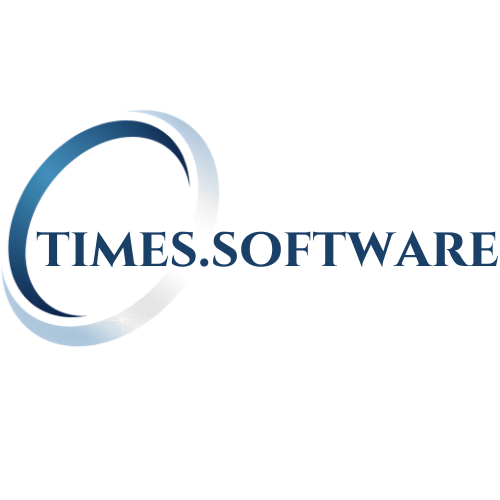
Angel One vs. Axis Direct Choosing the appropriate stockbroker is like selecting a trip guide for a new adventure—it makes all the difference. Angel One and Axis Direct are two major players in the Indian stockbroking market. Both platforms provide investors with unique features and rewards. But which one best fits your financial goals? Let’s dig deeper into this comparison to help you decide.
Table of Contents
Understanding Angel One and Axis Direct.
What is Angel One?
Angel One, originally Angel Broking, is one of India’s top full-service brokerage businesses. It was founded in 1987 and has continually evolved to match today’s trade needs. Angel One offers:
Trading and investment options include stocks, derivatives, mutual funds, commodities, and initial public offerings (IPOs).
A digital-first approach involves creating user-friendly mobile and desktop interfaces.
Smart Advisory Services: AI-based tools, such as ARQ Prime for personalized recommendations.
Discount Brokerage Model: Attractive pricing for frequent traders.
What is Axis Direct?
Axis Direct is the stockbroking arm of Axis Bank, offering an integrated platform for banking and trading. Launched in 2011, it appeals to both new and seasoned investors with features such as:
Wide Investment Options: Equities, bonds, mutual funds, IPOs, ETFs, and more.
Bank-linked Convenience: Seamless integration with Axis Bank accounts.
Research-driven Insights: In-depth reports and recommendations.
Reputed Brand Backing: A robust financial institution’s support.
Key Features Comparison
Account Opening Process
Angel One simplifies account opening with an entirely online process:
Paperless documentation Angel One vs. Axis Direct.
Zero account opening charges (in some cases).
Instant activation post-verification.
Axis Direct offers:
Online and offline account opening options.
Banking integration for quick setup.
Moderate account opening fees.
Brokerage Charges
Here’s a quick look at the fees:
Feature Angel One Axis Direct
Equity Delivery ₹0 0.50%
Equity Intraday ₹20 per trade 0.05%
Mutual Funds Free Free
Annual Maintenance Fee ₹300-450 ₹999
Angel One’s flat ₹20 brokerage fee is attractive for frequent traders, while Axis Direct’s percentage-based model can add up for high-value trades.
Join Now : Angel One vs. Axis Direct
Trading Platforms Angel One vs. Axis Direct

Both brokers offer robust trading platforms:
Angel One: Intuitive design with advanced charting tools, ARQ Prime integration, and seamless order execution.
Axis Direct: Powerful mobile app and desktop interface with access to market research reports.
Research and Advisory Services
Angel One’s ARQ Prime leverages AI for personalized recommendations. Meanwhile, Axis Direct focuses on traditional research, offering detailed reports curated by experts.
Investment Options
While both brokers support stocks, derivatives, mutual funds, and IPOs, Axis Direct extends its offering with exclusive products like bonds and government securities.
Direct specializes in traditional research, providing extensive findings vetted by experts.
Investment Options:
While both brokers offer stocks, derivatives, mutual funds, and initial public offerings, Axis Direct differentiates itself by offering special items such as bonds and government securities.
Customer Support: Availability and Channels
Angel One is available by phone, email, chat, and social media.
Axis Direct provides comprehensive support through bank locations, phone, and email.
Quality of Assistance
According to user comments, Angel One’s assistance is more technical in nature, but Axis Direct’s approach is more personable.
Security and reliability
Regulatory Compliance
Both platforms follow SEBI guidelines, which ensure fair trading methods and customer safety.
Join Now : Angel One vs. Axis Direct
Data Security Measures Angel One vs. Axis Direct
Angel One and Axis Direct use strong encryption standards, secure payment gateways, and two-factor authentication to ensure account security.
Angel One’s advantages include low-cost trading.
Advanced AI-based suggestions.
Platforms that are intuitive and easy to use. Drawbacks of Angel One
The number of physical branches is limited.
Occasional platform outages during peak trading hours.
Advantages of Axis Direct:
Smooth bank integration.
A broader range of investment alternatives.
Solid research and advisory support.
The disadvantages of Axis Direct
Frequent traders receive a higher brokerage rate.
Beginners face a steeper learning curve.
Who Should Choose Angel One?
Angel One is suitable for low-cost traders, newbies looking for simple platforms, and those who value AI-powered financial guidance.
Who Should Choose Axis Direct?
Axis Direct is ideal for investors seeking detailed research, smooth banking integration, and access to a wide range of financial products.
Final Verdict Angel One vs. Axis Direct
Angel One and Axis Direct both excel in their respective fields. Choose Angel One for low-cost, tech-savvy features, while Axis Direct is your go-to for premium research and various investments. It’s your choice.
Detailed Comparison of Angel One and Axis Direct
Account Opening Process Angel One vs. Axis Direct
Ease of Opening an Account
Angel One stands out for its seamless digital account opening process. Here’s why:
Paperless Documentation: The entire process is conducted online, requiring only scanned copies of PAN, Aadhaar, and a bank statement.
Quick Activation: Accounts can be activated within 24 hours, provided all details are correctly uploaded.
No Hidden Charges: Angel One often waives account opening charges as a promotional offer, making it more appealing to first-time investors.
Axis Direct offers both online and offline account opening options. While this dual approach caters to a broader audience, it may not be as streamlined as Angel One’s digital-first model. However, the integration with Axis Bank accounts simplifies things for existing bank customers, reducing documentation requirements.
Costs Involved Angel One vs. Axis Direct
Angel One generally has no upfront charges for account opening. Axis Direct, on the other hand, charges a nominal fee that may vary. Additionally, the annual maintenance charges (AMC) for Axis Direct are higher, which could be a deciding factor for cost-conscious traders.
Brokerage Charges and Fees
Brokerage charges are a critical factor for traders and investors, directly impacting profitability Angel One vs. Axis Direct.
Angel One’s Flat Fee Model
Angel One employs a flat fee structure:
₹0 for equity delivery trades.
₹20 per order for intraday, futures, options, and currency trading.
This pricing makes Angel One an excellent choice for frequent traders and those executing high-value trades, as costs remain predictable.
Axis Direct’s Percentage-based Brokerage
Axis Direct uses a percentage-based model:
0.50% for equity delivery Angel One vs. Axis Direct.
0.05% for intraday trades.
While this structure may suit small bank customers, lowering documentation requirements.
Costs for Angel Account opening often does not incur any upfront fees. Axis Direct, on the other hand, charges a little cost that can fluctuate. Furthermore, Axis Direct’s annual maintenance expenses (AMC) are greater, which may influence cost-conscious traders.
Brokerage Charges and Fees
Brokerage charges are an important consideration for traders and investors, as they have a direct impact on profitability Angel One vs. Axis Direct.
Angel One’s Flat Fee Model
Angel One follows a flat pricing structure:
₹0 for equity delivery transactions.
Price: ₹20 per order for intraday, futures, options, and currency trading.
Angel One’s pricing makes it an ideal choice for frequent traders and those making high-value deals, as expenses are predictable.
Axis Direct offers percentage-based Brokerage
Axis Direct utilizes a percentage-based model:
Trading Platforms: Features and Usability.
Both Angel One and Axis Direct provide solid platforms, although their core areas differ greatly.
Angel One’s Platforms Angel One vs. Axis Direct
Angel One stands out with its user-friendly design and AI-powered tools:
Angel One Application: It is optimized for Android and iOS and provides comprehensive charting capabilities, real-time market information, and tailored notifications.
ARQ Prime: This AI-powered platform generates curated investment suggestions based on individual risk profiles.
Desktop Trading Terminal: A feature-rich software developed for experienced traders that includes detailed metrics and customisable dashboards.
Axis Direct’s Platforms
Axis Direct likewise offers multi-platform access, but it concentrates on research integration:
The mobile app provides access to Axis Bank-linked portfolios, market research data, and smooth transactions.
Web and Desktop Platforms: Ideal for traders that rely primarily on in-depth study,
Angel One’s platforms focus simplicity and quickness, making them suitable for beginners. Axis Direct’s tools, while extensive, may be daunting for inexperienced traders, but they are ideal for those looking for precise market information.
Join Now : Angel One vs. Axis Direct
Research and Advisory Services
The quality of the broker’s research and guidance can often determine investment success.
Angel One’s ARQ Prime utilizes AI algorithms to provide stock recommendations.
Concentrates on long-term wealth growth through tailored portfolios.
Ideal for tech-savvy investors that want automated processes.
Axis Direct Research Team
Provides detailed analysis of equities, mutual funds, and derivatives.
Allows access to daily market updates, quarterly reports, and expert views.
More appropriate for traders who appreciate human-driven research and traditional methods.
Investment Options: Available
Both brokers provide a wide range of investing opportunities.
Axis Direct Angel One vs. Axis Direct

Axis Direct uses Axis Bank’s vast footprint to provide:
Branch Support: Investors can seek individual support at physical locations.
Phone and email: Available during regular business hours.
Security and trustworthiness
Both platforms adhere strictly to SEBI standards and promote consumer protection.
Angel One enables end-to-end encryption.
Provides two-factor authentication for safe logins.
Regular audits are conducted to ensure the platform’s integrity.
Axis Direct uses safe data storing measures.
Integrates with Axis Bank’s powerful IT infrastructure, providing additional layers of protection.
Final Thoughts
When deciding between Angel One and Axis Direct, think about your trading style, investment objectives, and budget. Angel One provides fantastic tools and affordable prices for those who are cost-conscious or new to trading. In contrast, Axis Direct is the appropriate option for seasoned investors seeking
Also Read :
Upstox vs. Axis Direct – A detailed analysis
A Comprehensive Guide to Tracking Portfolio Performance on 5paisa
Upstox vs. Axis Direct – A detailed analysis
Strategies for Success in Trading Commodities on 5paisa
Unlocking Opportunities: Angel One Algo Trading Options Explored
Upstox vs. Angel One – A comparative study
Conclusion
When deciding between Angel One and Axis Direct, your choice should align with your specific financial needs, trading habits, and investment goals. Angel One excels in affordability and simplicity, making it a fantastic choice for beginners and active traders who want low-cost and tech-savvy solutions. Its flat-fee brokerage model and AI-driven recommendations via ARQ Prime are major advantages for those focused on maximizing returns without incurring high costs.
On the other hand, Axis Direct caters to investors who prioritize detailed research, access to diverse financial instruments like bonds and government securities, and seamless integration with banking services. Its higher brokerage fees are justified for those who value robust research reports and traditional advisory services.
In summary, Angel One is ideal for cost-conscious, tech-savvy traders, while Axis Direct is perfect for those who prefer a well-rounded, research-intensive approach to investing. Assess your needs carefully and choose the broker that best complements your financial journey.
Frequently Asked Questions
Q: Is Angel One better than Axis Direct for beginners?
A: Yes, Angel One provides user-friendly platforms and reasonable brokerage, making it suitable for beginners.
Q: What are the key distinctions between Angel One and Axis Direct?
A: The main variations are in brokerage fees, trading platforms, and research tools.
Q: Can I have an account with both Angel One and Axis Direct?
A: Absolutely. Many investors utilize many brokers to diversify their assets Angel One vs. Axis Direct.
Q: How secure are Angel One and Axis Direct?
A: Both adhere to stringent regulatory standards and use robust data security procedures.
Q: Which platform provides superior research tools for experienced traders?
A: Axis Direct’s research tools are more comprehensive, geared to seasoned traders looking for detailed information.

Add a Comment